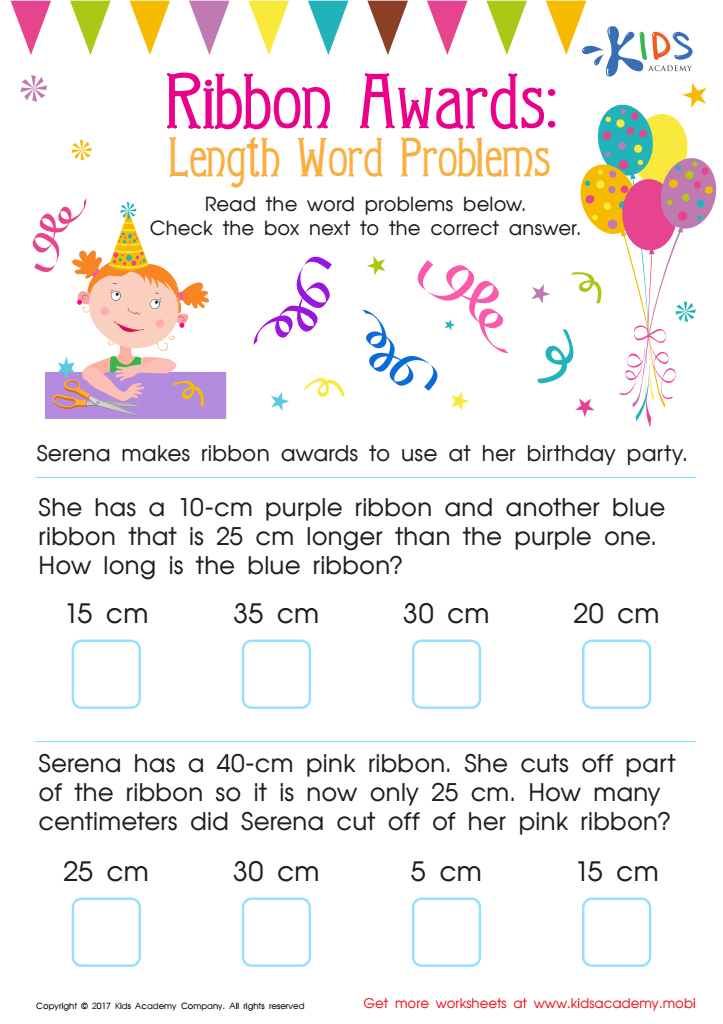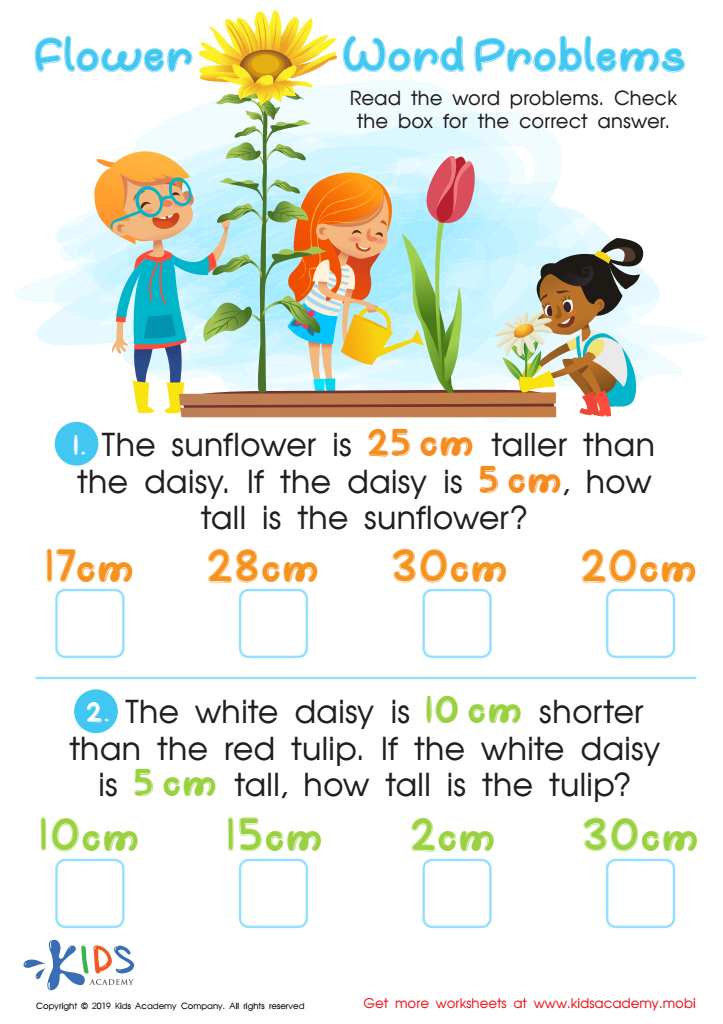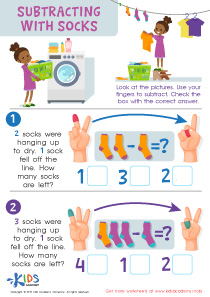Length and Mass Word Problems Worksheets for Ages 4-6
2 filtered results
-
From - To
Introduce your young learners to the practical world of length and mass with our captivating worksheets, designed specifically for children aged 4-6 years. These engaging Homeschool online printables offer a fun and interactive way for kids to grasp basic measurement concepts through a variety of word problems. Each worksheet is carefully crafted to develop early math skills, encouraging children to compare, estimate, and solve problems involving length and mass. Ideal for both classroom and at-home learning, these printables ensure a solid foundation in measurements with colorful, child-friendly activities that keep learning light and enjoyable. Let your little ones explore and learn with confidence!


Length Word Problems Worksheet


Flower Word Problems Worksheet
The Importance of Homeschool Interactive Worksheets on Length and Mass Word Problems for Children Aged 4-6 Years
In the formative years of childhood, especially between the ages of 4 and 6, children are remarkably receptive to learning new concepts. This period is crucial for developing foundational skills in various subjects, including mathematics. One effective way to nurture mathematical skills in young learners is through the use of homeschool interactive worksheets, particularly those focused on length and mass word problems. These worksheets are not only educational but also engaging, making learning a fun and interactive experience for young children.
Firstly, homeschool interactive worksheets on length and mass word problems are instrumental in introducing basic mathematical concepts to children. At the ages of 4 to 6, children are just beginning to understand the world around them in more concrete terms. Concepts like length and mass, which can be abstract when not properly illustrated, are made tangible through these worksheets. For instance, a worksheet might ask a child to measure the length of pencils or weigh different fruits, thereby turning abstract numbers into visible and understandable quantities.
Secondly, these worksheets enhance cognitive development in young learners. Solving word problems requires a certain level of cognitive skills including comprehension, reasoning, and problem-solving. When children attempt to solve problems involving the length of a rope needed to tie two poles or the mass of ingredients needed to bake cookies, they are not just learning about measurements; they are also developing critical thinking and analytical skills. These skills are essential not only in academics but in everyday decision-making and problem-solving as well.
Furthermore, homeschool interactive worksheets cater to individual learning paces. Unlike traditional classroom settings, where all children are often required to work at the same pace, homeschooling allows children to learn at their own speed. Interactive worksheets on length and mass can be revisited and repeated as needed, ensuring that each child fully understands the concept before moving on. This personalized approach helps in building confidence and a solid understanding of fundamental concepts in young learners.
Moreover, these worksheets are designed to be engaging and interactive, which is crucial for young children with short attention spans. Many worksheets incorporate colorful illustrations, real-life scenarios, and hands-on activities that make learning more appealing. This engagement is vital in keeping children interested and motivated to learn. For instance, a worksheet might use a story-based approach where a child needs to figure out if a toy box is light enough to carry or measure how long a bed is compared to a desk, thus integrating play with learning.
Finally , the use of homeschool interactive worksheets on length and mass fosters an early appreciation and enthusiasm for mathematics. By presenting math problems in a context that is relatable and interesting to young children, these worksheets help to demystify mathematics, making it less daunting and more accessible. This positive early experience with math can encourage a lifelong interest in the subject, which is essential in a world increasingly driven by technology and numerical data.
Additionally, these worksheets support the development of fine motor skills and hand-eye coordination. As children write numbers, draw lines to measure objects, or color certain areas based on mass and length, they refine their motor skills, which are crucial for other academic and life skills, including writing, typing, and sports.
Parents and educators can also use these interactive worksheets as a tool for bonding and collaborative learning. Working together on a worksheet can be a special time for parent-child interaction, providing opportunities for children to ask questions and for parents to provide guidance and encouragement. This can enhance the child's learning experience, making it more comprehensive and enjoyable.
The adaptability of homeschool interactive worksheets also means that they can be integrated with other learning tools and environments. For instance, a lesson on length can be extended with a practical measuring activity using a ruler in a garden, while a mass lesson can be complemented by using a kitchen scale to weigh ingredients for a baking session. This practical application ensures that the concepts learned on paper are reinforced in real-world scenarios, enhancing retention and understanding.
In conclusion, homeschool interactive worksheets on length and mass word problems are invaluable educational tools for children aged 4 to 6. They provide a solid foundation in basic mathematics while developing critical cognitive skills. Moreover, they offer a flexible, engaging, and interactive learning environment that can adapt to individual learning needs, foster a positive attitude towards mathematics, and facilitate practical learning experiences. These worksheets are not just about learning numbers; they are about setting the stage for successful and comprehensive lifelong learning.
 Assign to My Students
Assign to My Students













